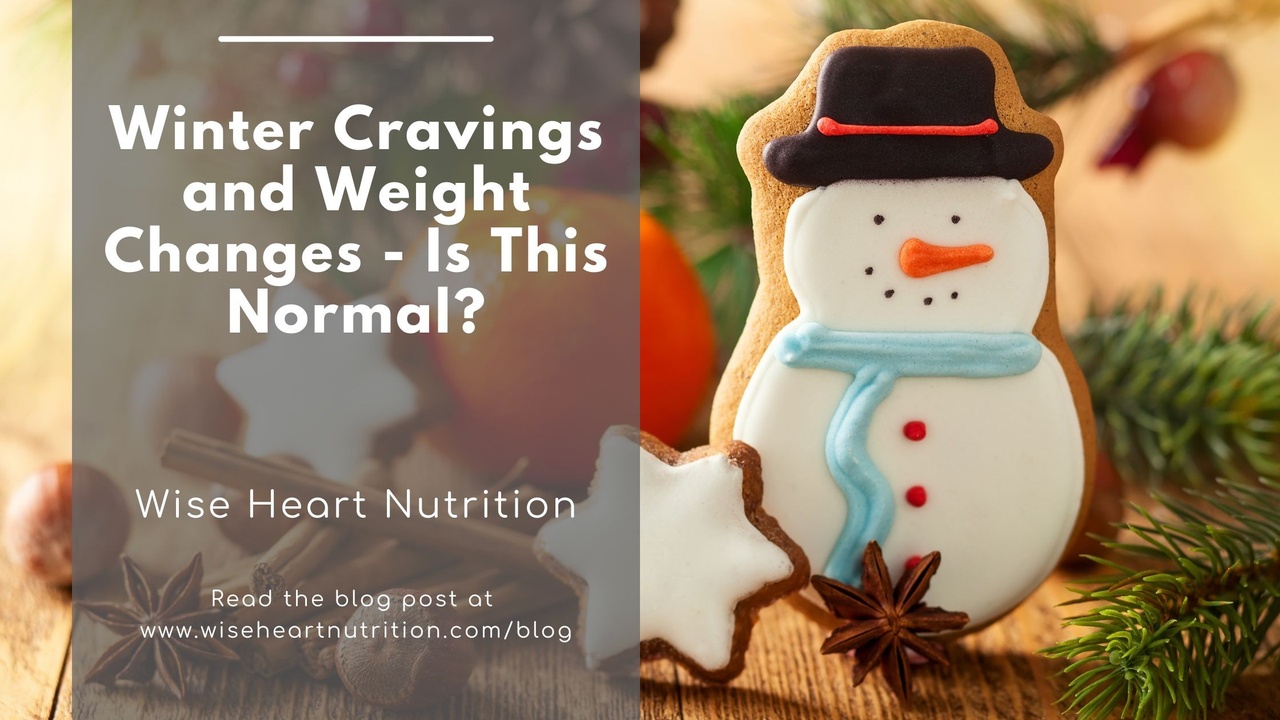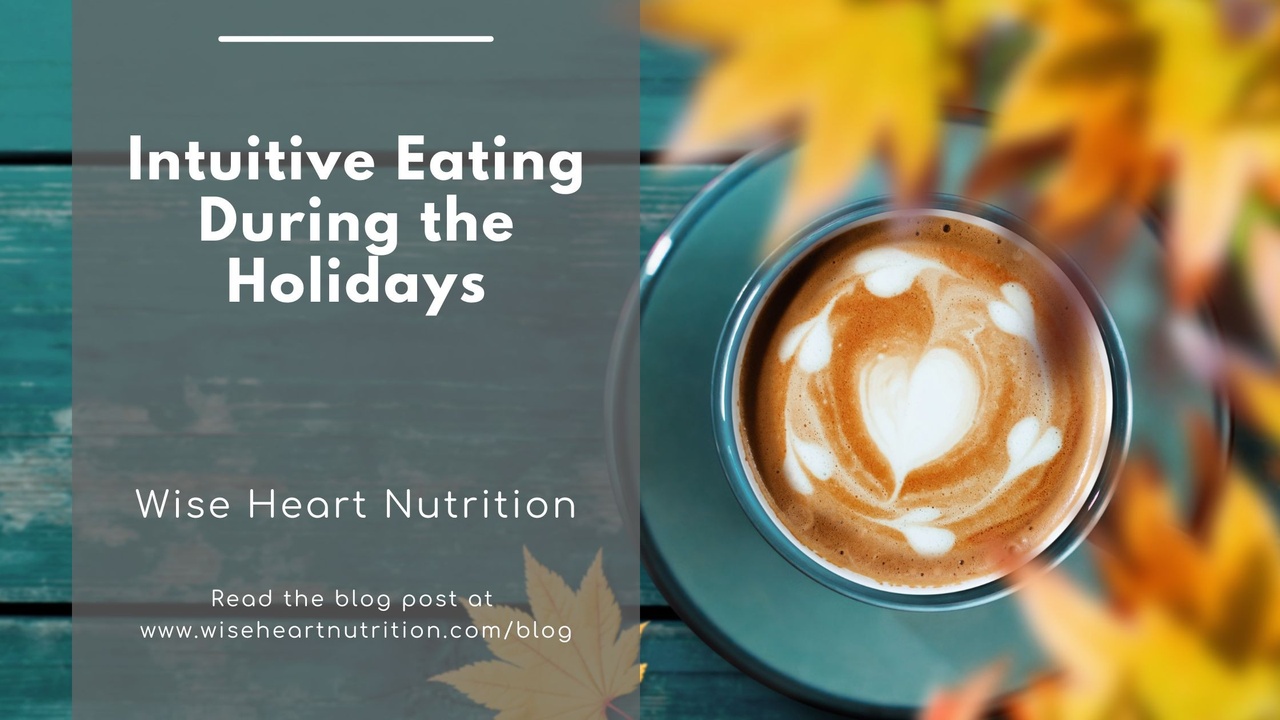Wise Heart Nutrition Blog:
All Things Anti-Diet, Intuitive Eating, and ADHD
What is Healthism? And What is True Health?

What is Health?
What is health, really? Is health itself a state of being? A set of behaviors? A performance? Is health a delicate balance between an individual, genetics, and environment? What we do know, is that if you ask 10 people what health means, you’ll get 10 different answers. There are multiple realms of health - physical, emotional, social, spiritual, mental - any of which may be more important to you than another. There may even be aspects of life that are more important to you than health, like personal goals or values. And that’s the point - whatever it means, health is personal!
What is Healthism?
Now, what is healthism? The term healthism was first coined by Richard Crawford in 1980. He defined healthism as the increased pervasiveness of health to all areas of life, and the promotion of health to a super-value that allows moral judgment. He argued that health was inherently political and due to healthism, the definition of health has become so strict that risk fac...
What is Body Trust? And 3 Steps to Start Building It!

The term “body trust” is showing up more and more on social media, in resources, and on the internet, but more often than not, we hear that folx are still unclear as to what body trust even means. We want to help explain not only what it is, but share 3 steps to start building body trust today, tomorrow, or whenever you are ready!
Body Trust is More than a Buzzword
Body Trust® is a trauma informed model / healing approach developed by Hilary Kinavey, MS, LPC and Dana Sturtevant, MS, RD (founders of The Center for Body Trust®). They define Body Trust® as “A radically different way to occupy and care for your body. It is a pathway to reclaim your body. Body Trust is paradigm shifting work that invites bravery and fierce body compassion.”
In action, body trust is a practice in which you counter conventional “wisdom” about food, body image, weight, and health in our culture, and instead look within your body for its own wisdom on what feels most aligned for you. It is a framework ba...
What About Fat Shaming People Who Aren’t Fat?

*The word fat in this article is used as a neutral descriptor of bodies, but acknowledges the intent behind fat shaming to be hurtful and discriminatory.*
Ahh, remember those fond and formative years of the early 2000s … record scratch. Remember being bombarded with media from all directions with content devoted to fat shaming? Remember waiting in the check-out line at the grocery store and seeing the magazines plastered with insults and calling out how much weight a celebrity had lost or gained? Looking back, though, a lot of those people that were constantly being publicly bullied for their weight … weren’t actually fat. We’ve established that body shaming is completely horrible, but what about fat shaming people who aren’t fat?
While it doesn’t compare to the harmful magnitude of fat shaming real fat bodies, body shaming those in smaller bodies is its own special brand of gaslighting that’s used as a method of societal control. It’s an insidious form of misogyny, and a seem...
Intuitive Eating with Diabetes, PCOS, and other Chronic Conditions

So you’ve heard about intuitive eating, but you don’t know if it’s for you because you live with a chronic health condition. There are 10 principles of intuitive eating, focusing on rejecting diet culture, finding your hunger and fullness cues, discovering satisfaction in food and movement, and gentle nutrition. While a chronic condition may pose a barrier to one or more of the principles, it is possible to start by focusing on the components that are within your ability. Read on to find out how you CAN eat intuitively with diabetes, PCOS, or any other chronic condition!
What About My Weight?
Many chronic health conditions carry the stigma that they are caused or worsened by weight, but clinical research has still failed to definitively show this to be true. Weight or BMI is not indicative of health. Those in the “overweight” or “o—-” BMI category lead just as long and healthy lives as those in the “normal” BMI category, if not longer. And of individuals with a chronic illness, t...
What Is Normal Eating? Take the Quiz!

You may have made your way to this page because you feel confused about what “normal” eating even means. You have probably endured years, or decades, of messages like “you should eat this, not that”, “that is a bad food”, and “you can have as much of this guilt-free (read: diet) food as you want”. If you have been trying desperately to lose weight by following various diets, sticking to food rules, or eating according to any kind of external plan, your hunger and fullness cues might be totally out of whack. And on top of all of this, trying to wade through the ocean of nutrition and “health” information available on the internet and social media is completely overwhelming to sort through. Whew! No wonder you’re feeling confused!
Well, you landed in the right place! We have created a normal eating quiz (guide, checklist, assessment - or whatever you want to call it) to provide you with a jumping off point for bringing more aspects of normal eating into your relationship with food...
Why and How to Make New Year's Resolutions that Aren't About Weight

Did you just see your tenth (or ten millionth) content piece about “new year, new me”? Let’s all say it together - ugh! It’s time for a new year celebration again, and with that comes all the diet industry ads and allll the pressure to make new year’s resolutions around health and body size (and just like every year, they come with that golden promise that “this time, you will make it work”!). Before you start your goal list (or don’t), can we invite you in for a little chat on why you should not make a new year’s resolution to lose weight?
Weight is not a behavior
Read that line again. Weight is not a behavior, and it’s not something you can directly control over the long term. Which means it’s not realistic to make a goal about controlling or changing weight. Research shows that there is little support for the notion that diets lead to lasting weight loss or health benefits. In fact, about 75% of weight and shape is determined by genetics, with much of the remaining percenta...
Why Does Eating For Pleasure Matter So Much?

Whether you're a newcomer to intuitive eating or a seasoned vet, pleasure in food can sometimes still feel like a dirty word. Allowing and enjoying pleasure in your eating experience goes against everything diet culture stands for, like self-control, denial of pleasure, and avoidance of "bad" foods.
The intuitive eating principles describe pleasure in food as one of the most basic and important factors in feeling satisfied or content with food. So eating for pleasure is important, and in this blog, we'll answer 4 questions about food/eating and PLEASURE.
What are some of the psychological health benefits associated with food enjoyment?
- Pleasure of any kind (including pleasure from food) leads to a release of dopamine (a neurotransmitter) in the brain. Dopamine is often referred to as the “feel good chemical” because it activates the reward pathways in the brain, which helps to promote happiness, calmness, motivation, and focus.
- Thanks to diet culture, a big part of dis...
5 Tips to Improve Self-Esteem

Self-esteem can be a major area of confusion and heartache for many (ok, probably most). In order for our clients at Wise Heart Nutrition to truly experience progress in healing their relationship with food, we typically have to spend some time addressing self-esteem. First of all let’s clarify what self-esteem really is and why it’s important to our everyday lives. Then we’ll get to the good stuff - 5 steps to improve your self-esteem.
What exactly is self-esteem?
Self-esteem is your subjective sense of overall personal worth or value. The key word here is subjective - self-esteem may not be based on reality, but rather our perception. Similar to self-respect, it describes your level of confidence in your abilities and personal attributes.
Some sources that contribute to low self-esteem include:
- Living through negative or traumatic experiences
- Lacking access to positive support systems
- Engaging in or taking actions that don’t line up with our values
- Societal norms ...
Is it Normal for My Weight and Cravings to Change in Winter?

Daylight Saving Time has just ended (ugh), and the days are getting much shorter, much darker, and much colder. In the words of some famous show - winter is coming.
Have you ever noticed changes in your food cravings or shifts in your body weight with the seasons? Like, how a bowl of hot tomato soup and grilled cheese sounds way more appealing than watermelon and salad in the winter. Or how clothing might fit differently from summer to winter? Let’s explore why and how cravings and weight can fluctuate in the winter - and the big question, is that normal?
The general answer to that question is - yes, this is normal! We crave different foods, and our bodies may go through subtle (and even not so subtle) changes during the winter months. There are a few reasons for all of this, including (but not limited to) traditional seasonality, thermic response, and psychological shifts during this time of year.
Below, we break down these 3 explanations of how and why winter can im...
5 Tips for Maintaining a Healthy Relationship with Food During the Holidays

Spooky season is already upon us, which means the holidays are here! But, what we are told is the “most wonderful time of the year” can often feel like the most stressful time of the year. We are bombarded with events centered on food, more social commitments, being around family, and surrounded by expectations to be in a “festive mood”, spend money, and listen to non-stop holiday music. And with all of these variables (and more) contributing to stress, comes anxiety, which can manifest in our relationship with food.
I wish I could tell you that the spirit of the holiday season would magically make it easy to maintain the healthy relationship with food that you have been working towards. Wouldn’t that be nice?
Despite all this doom and gloom (it is halloween, after all), you CAN navigate the holidays, eat intuitively, AND maintain a healthy relationship with food. Here are 5 tips to thrive during the holidays and preserve the relationship you have built with food and body!...
